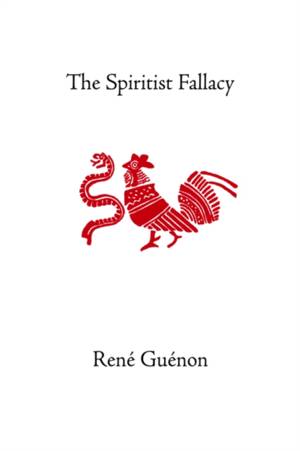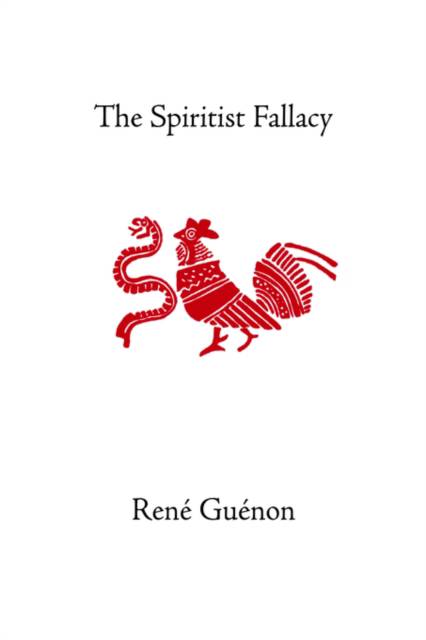
- Afhalen na 1 uur in een winkel met voorraad
- Gratis thuislevering in België vanaf € 30
- Ruim aanbod met 7 miljoen producten
- Afhalen na 1 uur in een winkel met voorraad
- Gratis thuislevering in België vanaf € 30
- Ruim aanbod met 7 miljoen producten
Zoeken
€ 50,45
+ 100 punten
Uitvoering
Omschrijving
Since WW II, 'channeling' has largely replaced older styles of mediumship in the movement loosely known as the New Age. Yet the two are intimately related. As both historical chronicle and metaphysical critique, The Spiritist Fallacy, together with its companion volume, Theosophy: History of a Pseudo-Religion, is a valuable study of New Age origins. Guénon takes the 'spirit manifestations' of the Fox sisters in Hydesville, New York (in 1847) as his starting-point, but while accepting the reality of many such 'manifestations', denies that they represent the spirits of the departed. He sees them, rather, as fostering belief in a kind of rarefied materialism, as though the 'spirit of the deceased' were no more than an invisible, quasi-material body, and death no more than a 'shedding' of the physical body while the 'spirit' remains otherwise unchanged-a belief widespread today in popular culture. The author demonstrates how various 'spirit philosophies' are little more than reflections of their own milieux-'English spirits' being conservative and denying reincarnation, 'French spirits' accepting reincarnation and espousing progressivist or revolutionary ideas, etc. And he addresses the strange fact that 'manifestations' associated from antiquity with haunted houses suddenly, in the 19th century-and within five years of their appearance-spawned an international pseudo-religious movement, speculating that certain magicians (possibly from the Hermetic Brotherhood of Luxor) may have intentionally produced the Hydesville phenomena by actively projecting hidden influences upon the passive psyches of their mediums. The mutual influence of Spiritism and Theosophy, and the adverse affects of 'spirit entities' upon many mediums, are also covered in considerable detail. The Spiritist Error is both an exposé of 'unconscious Satanism' and a highly useful critique of the false ideas of the afterlife which are so prevalent in our time.
Specificaties
Betrokkenen
- Auteur(s):
- Vertaler(s):
- Uitgeverij:
Inhoud
- Aantal bladzijden:
- 364
- Taal:
- Engels
- Reeks:
Eigenschappen
- Productcode (EAN):
- 9780900588723
- Verschijningsdatum:
- 23/05/2004
- Uitvoering:
- Hardcover
- Formaat:
- Ongenaaid / garenloos gebonden
- Afmetingen:
- 152 mm x 229 mm
- Gewicht:
- 653 g

Alleen bij Standaard Boekhandel
+ 100 punten op je klantenkaart van Standaard Boekhandel
Beoordelingen
We publiceren alleen reviews die voldoen aan de voorwaarden voor reviews. Bekijk onze voorwaarden voor reviews.







